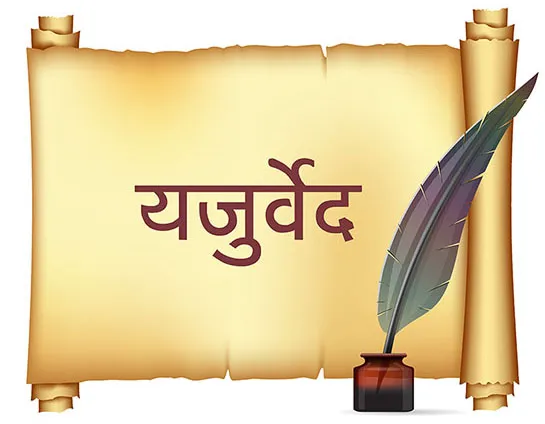"Lead
me from the unreal to the real,
From
darkness to light,
From
death to immortality." -----
This
is a quote from the Yajurveda, one of the four sacred texts of Hinduism, also
known as the "Brahma Upanishad" It is a prayer for spiritual
guidance, asking to be led from the illusions of the material world to the
truth of the spiritual realm, from ignorance to knowledge, and from death to
immortality.
Historical & Societal Context of Yajurveda :
The Yajurveda is believed to have been composed between 1500 and 800 BCE, during a time when early Indian society was transitioning from a nomadic, pastoral way of life to a settled, agrarian one. As people began to settle in one place and clear land for agriculture, the need for organized religious rituals and sacrifices to appease the gods and ensure a bountiful harvest arose. This is reflected in the content of the Yajurveda, which is primarily concerned with the performance of sacrifices and the proper use of the liturgical formulas.
During this period, early Indian society was also divided into four social classes known as the varnas: Brahmins (priests and scholars), Kshatriyas (warriors and rulers), Vaishyas (merchants and farmers), and Shudras (servants and manual laborers). The Yajurveda reflects this social hierarchy, with the Brahmins occupying a central role as the performers of sacrifices and custodians of the Vedic knowledge.
The Yajurveda also reflects the religious and philosophical beliefs of the time, including the worship of various gods and goddesses, the belief in the power of sacrifice to propitiate the gods and ensure a bountiful harvest, and the idea of the ultimate unity of all things. This text also contains hymns to the god of fire and god of wind and also reflects the importance of nature worship in early Indian religion.
Overall,
the Yajurveda provides a valuable glimpse into the religious, social, and
economic beliefs and practices of ancient India, and it continues to be an
important text for Hinduism today.
Key Points to Remember About Yajurveda :
- The Yajurveda is one of the four sacred texts of Hinduism, known as the Vedas.
- It contains liturgical material and instructions for performing sacrifices and rituals.
- It is divided into two main parts: the White Yajurveda and the Black Yajurveda.
- The White Yajurveda includes the liturgical formulas that are to be spoken by the priests during the performance of the sacrifices, while the Black Yajurveda includes the explanations and instructions for performing the rituals.
- It is believed to have been composed between 1500 and 800 BCE, during a time when Indian society was transitioning from a nomadic, pastoral way of life to a settled, agrarian one.
- It reflects the social hierarchy of early Indian society, with Brahmins occupying a central role as the performers of sacrifices and custodians of the Vedic knowledge.
- It reflects the religious and philosophical beliefs of the time, including the worship of various gods and goddesses, the belief in the power of sacrifice to propitiate the gods, and the idea of the ultimate unity of all things.
- It is an important text for Hinduism today and still used in various rituals and ceremonies.



Comments
Post a Comment